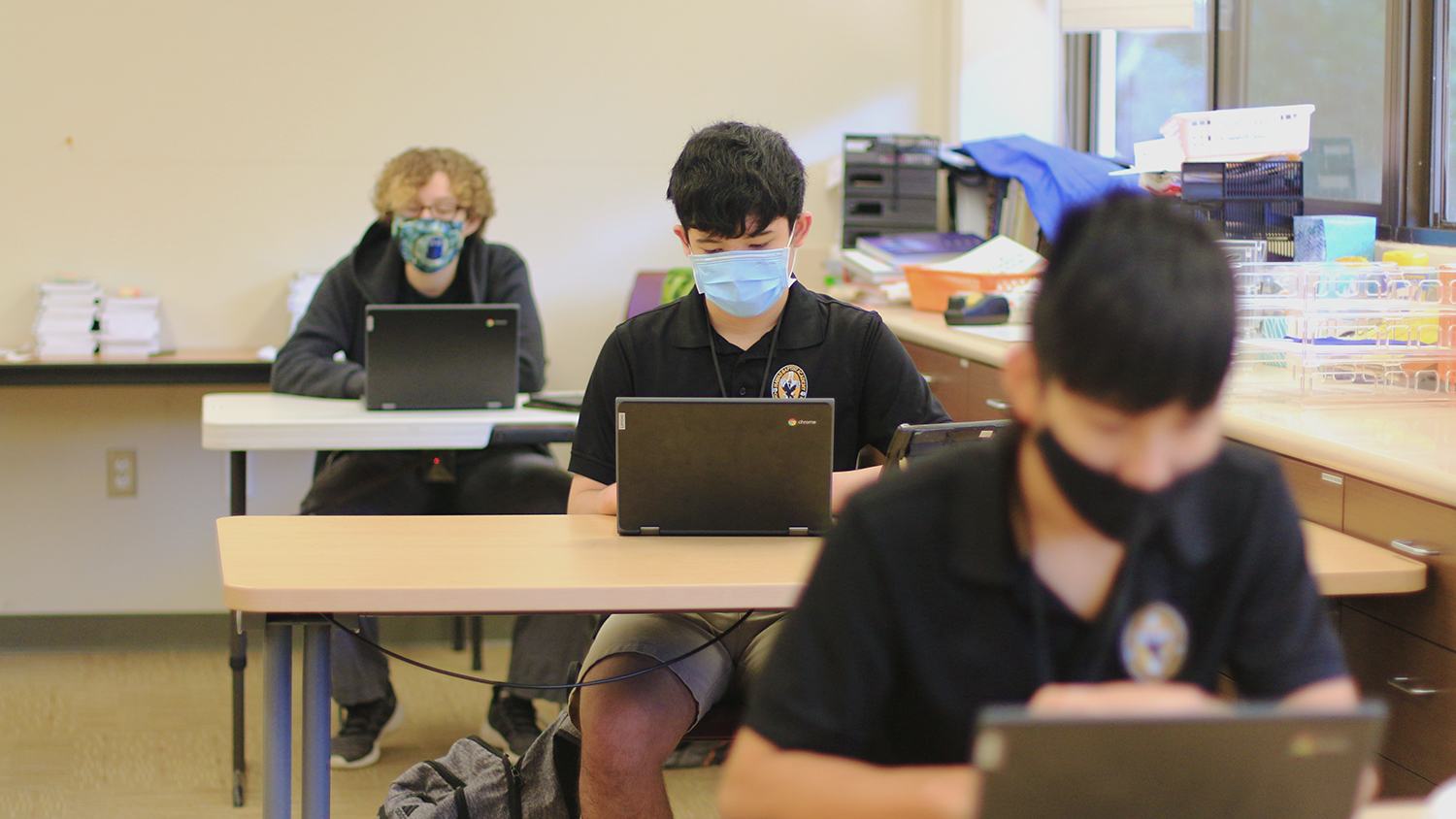Adapting to Pandemic School


“I would normally walk around the classroom and come alongside students to help them, and I miss being able to do that,” said English teacher Jennifer Duncklee. Chemistry teacher Michael Hu shared Duncklee’s frustrations. “I don’t get a sense of the students’ learning or not learning. I’m old school and I like to look into a person’s eyes to determine if there is comprehension of the material I’m presenting,” he said.
Teachers have also had to make adjustments when it comes to assessments. “Textbooks have been updated to an electronic format which is a few versions from the old one so all the notes and tests and quizzes have to be rewritten,” Algebra teacher Fred Fong said. He also noted that cheating has become a bigger issue with online classes. To address this, the school is now holding mid-term assessments in which students are required to come on campus to take their tests in person. Bible teacher Erin Schlittenhart said that she has modified her assessments to combat cheating. “Part of the test is oral, instead of having it all written,” she explained.
Students have had to adapt to hybrid learning alongside their instructors. Sophomore Kyle Kumasaka said, “In online class I feel that it’s harder to focus because of distractions around us. I also feel like I’m not learning as much by just being online.” Classmate Ryan Fukui shared Kumasaka’s struggles, saying, “Due to online school, some challenges I dealt with were focusing on class and studying on my own. I usually talk to my friends and teachers about what to study, but I had to learn how to be independent.”
Students’ struggles in online learning seem to also impact their ability to complete assignments given to them. “I for one am not the only one that said this but I think the hardest challenge when I’m in online school is procrastination,” sophomore Landen Otaka said. While Otaka has adjusted to the concurrent schedule, he feels that he’s still playing catch up in some ways. “I’m trying to retrace my steps through quarter one and two so that I can get a better understanding of what I did wrong.” Like Otaka, Fukui is working on doing better in the second semester. “I have a hard time memorizing concepts and need to find a way to remember better,” he said.
Many faculty members suggested that students make the effort to get tutoring from teachers outside of class time. They seem determined to aid students with both offers of academic help and emotional support. History teacher Zachary Markwith offered this encouragement: “Don’t wait until the last minute. Never hesitate to meet or email a teacher. We want to help you, we are here for you. Let us help you out.” Markwith believes that during these moments spending time in prayer will also help students find a good perspective when under stress. “Most importantly, go to God in prayer and bring others around you to support you,” he said.
Fong, still sees students struggling this semester, offered this frank advice: “Get gritty. We all struggle in something somewhere and sometimes. There are no excuses if you don’t try. Cheating maybe a way out temporarily but not for the long term. You don’t learn something without failing. Those who pick up themselves after failing over and over again will learn from their mistakes and move forward.”
